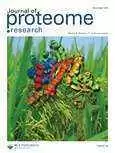Arch Intern Med. 2003;163:1566-1572.
Ulrike Peters, PhD, MPH; Johan Askling, MD; Gloria Gridley, MS; Anders Ekbom, MD, PhD; Martha Linet, MD
Celiac.com 07/30/2003 - The following abstract paints a fairly bleak picture for those of us with celiac disease; however, after taking a closer look at it I believe that it has some serious limitations that should not be overlooked, and have likely produced skewed or irrelevant results. For example, the study does not indicate whether or not the patients in it followed a strict gluten-free diet. Other studies have shown that the mortality risk for celiacs decreases to that of the normal population when a gluten-free diet is followed for at least five years, and that it is also affected by how soon the diagnosis is made and how soon treatment begins. It is well known that not following a gluten-free diet will increase a celiacs risk of death by many causes to many times that of the normal population, which is precisely why it is so important to include such information in studies of this type. In my opinion doing a study like this and not including such data is like doing a study on diabetes where perhaps half or more people in the study do not take insulin but ought to, and then publishing the ultra-high mortality rate that would be its outcome: "Conclusion: Diabetics have a 20-fold mortality rate over the normal population." The conclusion would clearly not be true for those who took their insulin.
Celiac.com Sponsor (A12):
Additionally the time period that is covered by this study, 1964-1993, could be considered the dark ages of celiac disease, even in Europe (we actually may be just entering the Renaissance age for celiac disease here in the USA, but this could be argued!). Many doctors during this time did not stress enough to their patients the importance of following a strict gluten-free diet, just as many still do not even do this day. My doctor didnt. He just diagnosed me and said I shouldnt eat gluten (as opposed to telling me that it could kill me if I kept eating it), and he didnt even explain to me HOW to avoid it! Is it possible that some of the folks in this study, diagnosed as far back as 1964, might have had similar experiences with their doctors? I would be willing to bet that at least 50% of the people in this study (if not more) were not following a strict gluten-free diet, or were not following the diet at all. If this is true, it is kind of like studying a group of diabetics whose only treatment was to be told by their doctors that they should avoid sugar, which seems absurd if you think about it.
Last, the study has considerable bias in that it recruited only hospitalized celiacs, presumably because they were already significantly ill, and those who never made it into a hospital were excluded. It reports findings of auto-immune diseases and small bowel/lymphomaexcesses--these are already well known--but what other researchers may disagree with is the scale of the excess--SMR is always a very crude method ofexpressing this in such studies. - Scott Adams (special thanks to Dr. Geoff Helliwell for his comments on this study)





Recommended Comments
There are no comments to display.